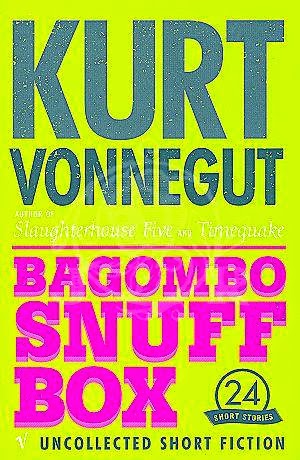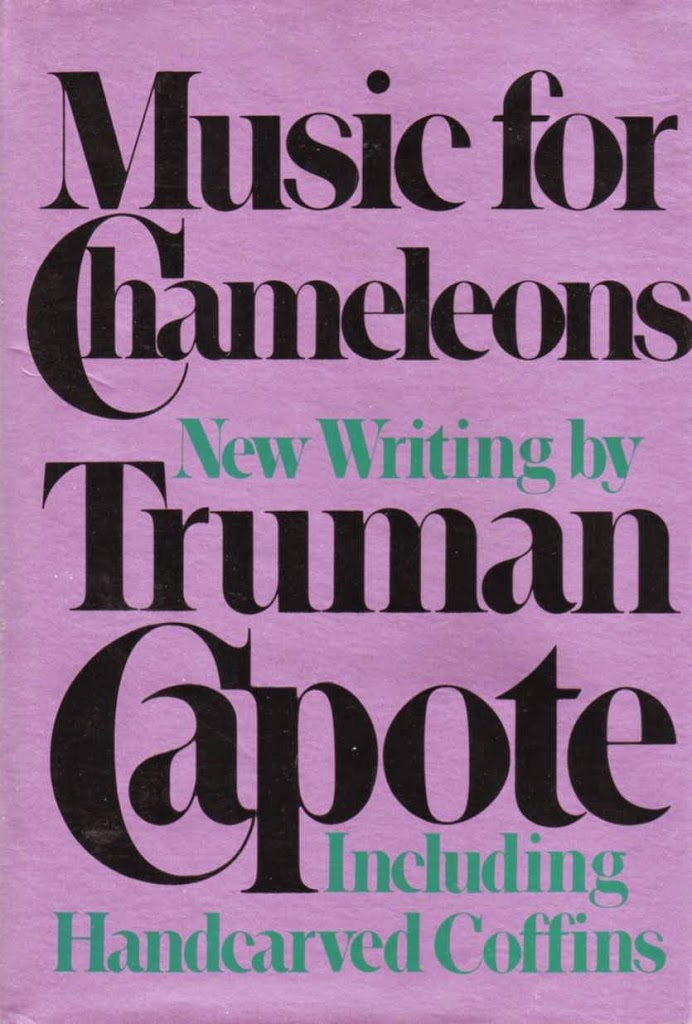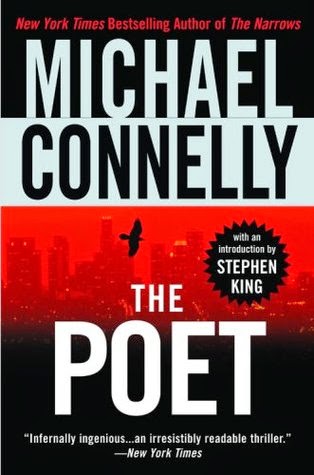By P.J. Parrish
When I write, I don’t read. Because I know, from experience, what happens when I do. I steal.
Now, don’t get me wrong. All writers steal. At least, the smart ones do. Because this is partly how you learn to write a novel, by reading other novels, figuring out how the person structured the story, analyzing how the characters were layered, how the motivations were laid out, how the words were put together to elicit an emotional response. We learn by digesting the craftsmanship of others.
Here’s the thing though: You have to steal in the right frame of mind. And for me at least, that is NOT when I am working on my own book. If I see a way of structuring a scene or chapter that is clever, I will try to replicate it in my own book. If I read a passage that sings, I will try to mimic it even if it’s not my style. When I am writing, I am in this weird fugue state and my brain is very porous and open. The temptation to take things that really don’t belong to me is too great.
But something changes once I am done writing my own book. I binge read for pleasure. Freed from my own insecurities and writer ego, I hear other writers more clearly. And when that happens, I learn more about writing in general and the lessons sort of sit in my brain, baking and bubbling, until I need them.
So, yes, I steal from other writers. Here are some of the things I have taken and the people I took them from:
Every sentence must do one of two things: reveal character or advance the action. I stole this from Kurt Vonnegut. About ten years ago, I was struggling mightily to write my first short story. I went back and read Cheever, Hemingway, Saki and O Henry. I discovered John D. MacDonald’s The Good Old Stuff. But it wasn’t until I got to Vonnegut’s Bagombo Snuff Box that I hit pay dirt. In the preface, Vonnegut laid out his eight rules for writing. (Click here to read them all.) His idea that every sentence must reveal character or advance plot was a light bulb moment for me. It now informs everything I write. And when I teach, I try to impress on writers that every scene, every chapter, must work hard in service to the twin poles of character and plot.
Kill Your Darlings. Nope, I didn’t get this one from Faulkner. I stole this from E.B. White. And by “darlings” I mean good characters. Charlotte’s Web is my favorite book, maybe the one that most influenced me as a writer. It has many great lessons but the most enduring is that a writer can – must – be brave enough to kill a good character. I’ve written about this before, so click here if you want to read more.
Fall in love with the sound of language. Stole this one from Truman Capote after reading Music for Chameleons. This is a miscellany of stories and essays published in 1980 after a 14-year drought following Capote’s brilliant In Cold Blood. It contains passages of exquisite beauty and it taught me, when I was just starting to write, to pay attention to what words sounded like. Like those chameleons in the lead story, I was mesmerized by the music, and have spent all the years since trying to make my own. (In his preface, Capote writes: “When God hands you a gift, he also hands you a whip for self-flagellation.” Ha!)
Don’t be afraid! This one I got from Mike Connelly’s The Poet. For most of our Louis Kincaid series, we have stayed mainly with a third-person intimate POV because we think filtering the story through our hero’s consciousness enhances the reader’s bond with him. But when we started our first stand alone thriller, The Killing Song, we realized our protag and villain were equally important. We needed something special to drive home their dichotomy of good and evil, so we decided to copy Connelly’s The Poet and mix first and third POVs. Our first chapter was written in first-person from the killer’s POV and the second chapter switched to third-person from the hero’s POV. But it wasn’t working. And we couldn’t figure out why. I ran into Mike at Bouchercon and told him I stole his idea. He smiled, shook his head and said, “But give the first-person to your hero. It’s his story.” We took his advice and the story took off. But I wouldn’t have had the guts to try without reading The Poet.
There have been other lessons learned from my life of crime. From Stephen King, who has tried everything from horror to westerns, from eBooks to novellas, I learned not to let expectations box me into one genre or style. This has given me the courage to use an unreliable narrator in my WIP. As E.B. White said, “Sometimes a writer, like an acrobat, must try a trick that is too much for him.”
From Flaubert’s Madame Bovary, I stole the idea that a protagonist can be deeply flawed. From Jane Austen’s Emma I learned to pay attention to secondary characters because they might hold the key to the story (In the end, George Knightley won Emma’s heart). From Pete Dexter’s Paris Trout, I got the revelation that all good crime stories are not about the crime but rather its rippling effect on the people and the town. And last but not least, From Anne Lamott, I learned that my quest for perfectionism is death. She wrote in Bird by Bird: “The only way I can get anything written at all is to write really, really shitty first drafts.” Which might be the best advice for writers I have ever heard.
Who do you steal from? And what treasure did you get?






Killing off good characters might work in serious crime fiction or thrillers but not in humorous cozies. In view of meeting reader expectations, I don’t aim to deal with heartbreaking situations with a beloved character nor can I ever kill off the family pet. So I’d temper this piece of advice with the warning to apply it to your subgenre. A character might get ill, but make it too maudlin and the reader will turn away for lighter fare. They come to my books to laugh, and I always have to keep this restriction in mind. As a reader or TV viewer, I, too, am not going to be happy if a favorite character dies. And yet, it worked for me in Downton Abbey, perhaps because I knew the actor wanted to leave the show. But it’s one of the reasons why I haven’t watched Game of Thrones.
I agree Nancy that killing a good character is never to be taken lightly. (I dealt with that in length in my original post). If it’s gratuitous or not handled well, reader reject it and your story. As for cozies, your observation that those readers come to the books with different expectations is well taken.
Harlan Coben. He is a master at creating memorable characters, and twists.
Will print this post off and pin it over my desk, plus Vonnegut’s eight rules, and I must look into Capote’s book. I’m busy. Gotta go.
I do agree with Nancy’s comment about killing characters, though. If it must be done, it must be done right, with skill and absolute necessity.
Amanda, I agree that Harlan is a good twister. I had long been a fan of his Bolitar books but really admired his switch when he wrote “Tell No One.” It set his career on a completely different trajectory.
I do read when writing, as I sometimes get ideas for how to handle something that has been giving me trouble. Multiple edits alleviate my concern over sounding derivative; by the time I’m done, it will sound like me. (To me, that’s the purpose of the edits, smoothing things out so it reads seamlessly.)
Who do I read for these things? Lots of people, but the keys are Ed McBain, Elmore Leonard, and George V. Higgins. I recently picked up a nice tip from reading one of Craig Johnson’s Longmire books.
All good advice. Of course, when Sir Arthur Quiller-Couch said “murder your darlings,” he wasn’t talking about a favorite character. He was talking about flowery or self-consciously eloquent turns of phrase. And that was really important for me to learn. Another way of saying it today would be, “Get over yourself and tell the story.” Stop trying to impress people with fancy writing and just tell the story. Which goes back to Vonnegut – everything should be in service to the story. Anything that isn’t goes overboard. I need to remind myself of this constantly. If I’m particularly fond of a word or phrase, I immediately suspect it and it goes on the potential hit list.
Same here, John. I have my favorite crutch words and phrases. I really should wear a rubber band on my wrist and snap it every time I write one!
I agree completely, John!
John–what you say has special application to a former college English teacher–and guess who that would be? I titled a novel “Affinity.” It should have been apparent to me that this particular darling had to go, but it wasn’t. Worse still, the agent who took on this book didn’t see it, either. I’m sure you know how successful she was in trying to sell the thing. That experience has made me very wary of agents whose bio includes an MFA.
I’ve stolen so many things from so many writers. My brand of wit owes a lot to Jane Austen. From Dorothy L. Sayers I stole the habit of dropping literary allusions all over the place—though I don’t have the education to make mine as arcane as some of hers. From Louise Penny I’m endeavoring to steal adding spiritual depth to a mystery.
Fantastic post! Love the great tips and advice but particularly fascinated by the Michael Connelly POV switch. Sounds like a fabulous if challenging way to write.
I’m glad you said that about reading 🙂 I’m a binge reader as well and find it much easier and relaxing to do after I’ve finished a WIP. Otherwise, I’m constantly deconstructing the book I’m reading and comparing it to mine!
The trick might be to read in a different genre to what I’m writing, while I’m writing i.e. don’t read fast-paced thrillers/adventure books until I’ve finished my book. I also reread a lot when I’m writing. My Terry Pratchett collection is very much dog-eared 🙂
You know, AD, I guess I sorta stretched the truth because, like you, I DO read while writing but only non-fiction. I’m almost thru Gilbert King’s splendid book on Thurgood Marshall, “Devil in the Grove.” But it’s so good it reads like a great novel.
I wish writers of crime fiction would steal a little less, because the tropes those thefts have engendered have calcified into market expectations. I recently had an industry-insider friend mark up my book proposal, and much of what she dinged me on was my familiar to conform to formula. One, my character didn’t have the requisite tragedy in his past. Two, he didn’t have a quirk like birdwatching or building model trains or collecting vintage jazz records. Three, he wasn’t instantly irresistible to every woman he encountered. Four, many of the reversals in my story were because of mistakes he made, not because he was a victim of circumstance or of somebody else. And on and on. I was urged to re-read Robert Crais, Craig Johnson, Harlan Coben, Michael Koryta and others, and “borrow liberally from their playbooks.” The entire critique could be summed us “be more like other writers.”
I feel that we’re not being encouraged merely to steal a little here and there, but to engage in outright body-snatching.
Good points, Jim!
You bring up an interesting point Jim. It remind me of every agent panel I have ever heard and how they all claim to be searching for “an original voice.” Yet we know what happens when you color too far out of the lines, especially in genre fiction. You hear that Barnes & Noble doesn’t know where to shelve your books or that your work is too eccentric to be grasped by the marketing department. In the end, you have to write the book you want to write. (My first agent advised me to go read P.D. James…which I did. Not sure what I got out of that, though, except pleasure.)
“Familiar” = “failure,” BTW. Gah.
OMG, what a great post! I Tweeted it and FB it and like someone said, I’m going to put it on my bulletin board.
I do read while I write because I can never stop reading. Reading another writer’s excellent writing does not give me license to copy but to be awestruck. I am inspired by the good writing of others.
I agree about killing off your characters, but Nancy is right. Writers must be careful. One of the best books that did this (and it shocked me) was The Elegance of the Hedgehog by Muriel Barbery. What a book! What a brave author!
Thanks for this wonderful post!
Thanks for passing me around Joan! TKZ authors love that. I’m not familiar with the Barbery book…what did she do exactly that so impressed you?
Excellent article, Kris! I checked out Kurt Vonnegut’s 8 rules and agree with all of them except #8 – seems like that one would kill suspense and intrigue, so essential to keep readers turning the pages!
I really like all the other points you make, except that as a reader, I really don’t like it when a sympathetic character I’ve rooted for and bonded to dies, to the point where I probably wouldn’t read anything else by that author.
Jodie: I agree with you on rule 8. But I think Vonnegut wrote these rules as advice for short story writing. So in that sense, the doling out of the suspense might have a different trajectory than in a novel.
This is one of the best pieces on what/how writers can learn from one another that I have ever read. Thank you for sharing your insights! They make me want to work harder as a writer, and that’s ALWAYS a good thing! 🙂
Thanks Morgen. You made my day.
One lesson I learned early on from Kate White: that I could give my female lead a snarky but self-deprecating tone. It enabled me to get the perfect handle on my series -to-be.
By the way, I think you can get the same close feel of deep point of view with third person, so my advice would be to write both the protagonist’s and antagonist’s chapters in close third-person POV. As a reader, I find that less jarring than the switch from first to third and back to first again, for different characters.
Lisa Alther and Kinflicks contributed greatly to my voice. Like Kathryn’s example, Lisa helped me hone the sharp snarky edge on my characters.
And I have been known to adapt and integrate a snippet that stuck in my head from something I read. For example, from a magazine article, the writer compared a singer’s bicep to a fresh tennis ball. Oh hell yeah . . .
I highly recommend:
How to Steal Like an Artist
Ha! I can see that metaphor. In Capote’s In Cold Blood, he describes approaching a penitentury in the Kansas wheat field at night and likens the pen to a giant ocean liner seen on waves. I don’t do it justice here and can’t locate my copy of the book. But that image stayed in my brain for years.
Outstanding! Especially impressed wth Vonnegut’s rules. The second one — every story must have someone the reader wants to root for — is often broken. I just put down a critically acclaimed book because I didn’t care about anyone in the novel. Thanks for writing this.
I strongly agree with you on this, Elaine. And I’d take it one step further and say the protagonist needs to be someone the readers want to root for.
I loved this post. Thank you! I do read while I’m writing. I think it gets my literary juices flowing. As far as stealing goes, I dissect the books I read. Maybe too much. But I enjoy the story at the same time, so I guess it works for me. *shrug*